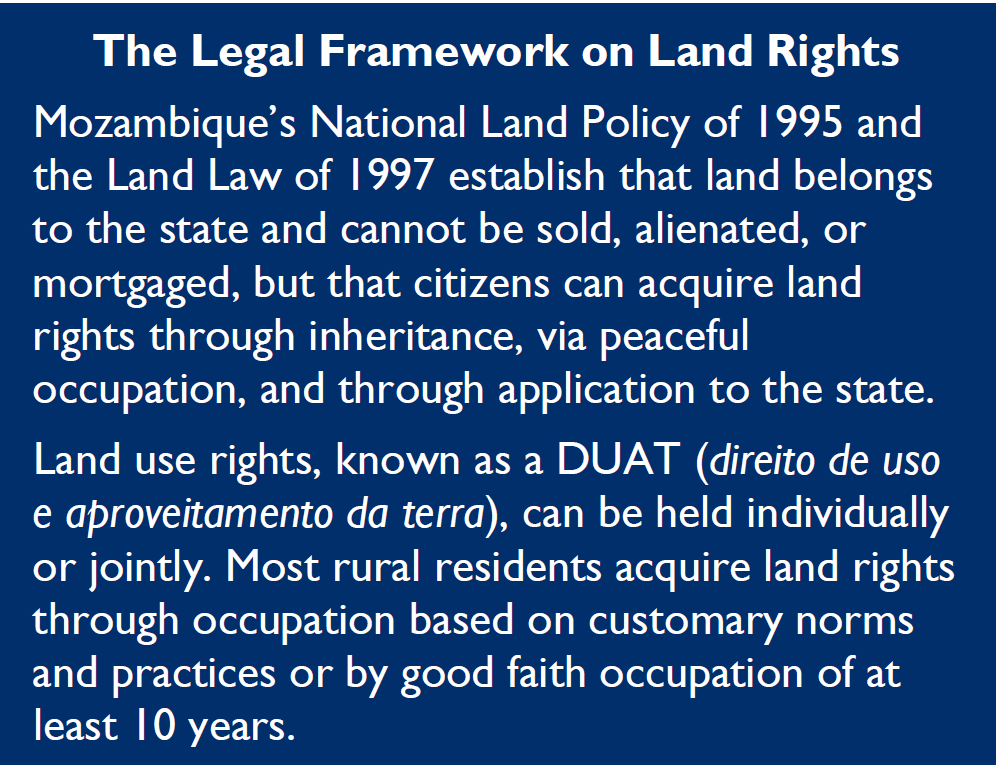INTRODUCTION
 The United States Agency for International Development (USAID)-funded Integrated Land and Resource Governance (ILRG) program improves land tenure security for women and youth as part of broad-based economic empowerment. In 2020, ILRG’s Mozambique team assessed gender and youth relationships and decision-making structures regarding land access and use in a matrilineal context in Zambézia Province. The lessons learned in the assessment help clarify how gender and age inequalities interact with the process of delimitation of land boundaries and confirmation of land rights, as well as women’s and men’s land use and tenure security. The findings presented in this brief can guide decision-makers to design appropriate gender and youth-responsive activities and materials.
The United States Agency for International Development (USAID)-funded Integrated Land and Resource Governance (ILRG) program improves land tenure security for women and youth as part of broad-based economic empowerment. In 2020, ILRG’s Mozambique team assessed gender and youth relationships and decision-making structures regarding land access and use in a matrilineal context in Zambézia Province. The lessons learned in the assessment help clarify how gender and age inequalities interact with the process of delimitation of land boundaries and confirmation of land rights, as well as women’s and men’s land use and tenure security. The findings presented in this brief can guide decision-makers to design appropriate gender and youth-responsive activities and materials.
The assessment involved qualitative field work in two communities in Ile District where delimitation of community and family land was supported by the Department for International Development-funded Land: Enhancing Governance for Economic Development (LEGEND) program in 2018 – 2019 and USAID’s ILRG program in 2019; both projects were implemented by Associação Rural para Ajuda Mútua (ORAM). The communities were also directly or indirectly affected by vast land concessions granted to Portucel, an international company investing in the production of timber for paper pulp and energy.
The projects supported the establishment and capacity building of community land associations, delimitation of communities, and subsequent delimitation of land parcels that had been previously acquired by families or individuals based on occupation. Together, LEGEND and ILRG helped form 25 community land associations and provided written declarations of land rights for over 13,000 family and individual parcels. Seventy percent of land titles were solely in the names of women and six percent were co-titled to a man and a woman.

